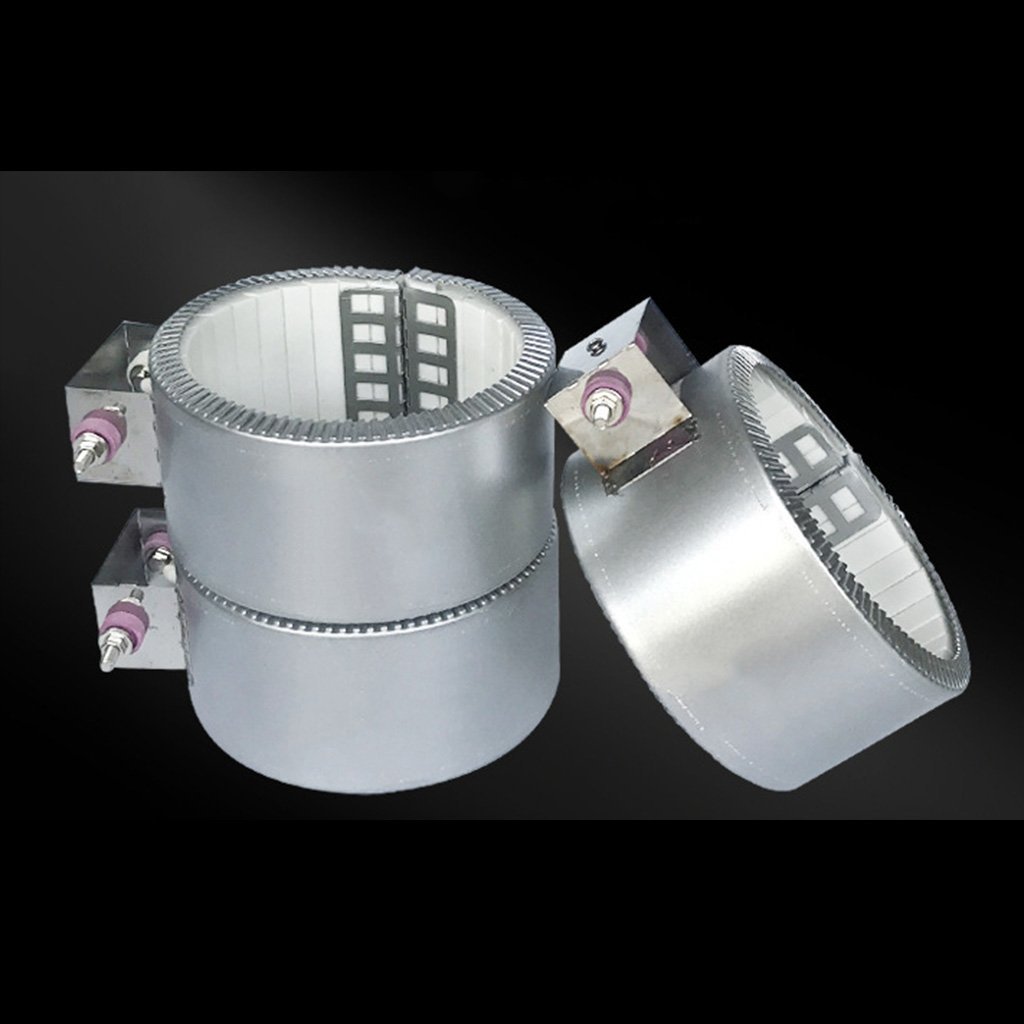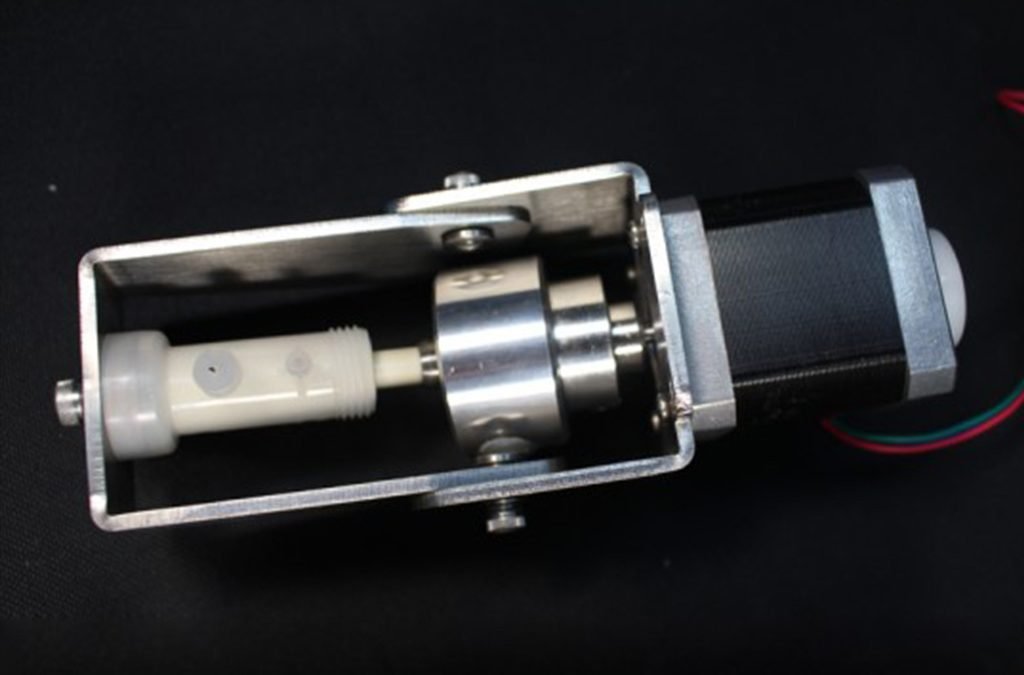Alumina industrial ceramics properties: sealing anti-wear, high temperature, high pressure, hardness, insulation, thermal conductivity, corrosion resistance, acid and alkali resistance, relatively low raw material prices, easy to refine and so on.
Below for the different properties of alumina industrial ceramics can be used in which practical applications to develop the narrative:
Sealing Anti-wear:
1, pumps and valves:
alumina seals can be used for pumps and valves in the sealing system. Its high hardness and low coefficient of friction so that it has excellent sealing performance, and can resist high pressure and high temperature conditions of wear.
2, the automotive industry:
aluminum oxide seals can be used in automotive engines and transmission system seals. Due to the harsh working environment of automobile engines and transmission systems, seals are required to have high temperature resistance, wear resistance and chemical corrosion resistance, alumina seals can meet these requirements.
3, chemical and petroleum industries:
alumina seals can be used in the chemical and petroleum industries, pipelines, tanks and equipment. The fluids in these industries are usually high-pressure, high-temperature and corrosive, alumina seals can provide reliable sealing performance and abrasion resistance to ensure the safe and reliable operation of the system.
4, high-temperature kilns:
alumina seals can be used in high-temperature kilns in the doors, ports and connections of the seal. High-temperature kilns in the environment requires seals to withstand high temperatures and thermal shock, and maintain good sealing performance, alumina seals have excellent high-temperature resistance and thermal stability.
5, electronics and semiconductor industry:
alumina seals can be used in electronic and semiconductor equipment sealing applications, such as vacuum systems, packaging equipment. Alumina seals can provide reliable sealing performance to prevent gas and liquid leakage, and at the same time has good electrical insulation properties.




High Temperature and High Pressure Resistance:
1, heat treatment and smelting industry:
alumina industrial ceramics can be used as linings and insulation materials for heat treatment furnaces, smelting furnaces and other high temperature industrial equipment. Due to its high melting point and excellent thermal stability, alumina can withstand high-temperature environments and maintain structural stability.
2, high-temperature heat transfer equipment:
alumina industrial ceramics can be used for high-temperature heat transfer equipment, such as heat exchangers, tube bundles and burner linings. In these devices, the high temperature resistance of alumina can ensure the efficiency of heat transfer, and resistance to high temperature and thermal shock caused by damage.
3, aerospace industry:
alumina industrial ceramics can be used in the aerospace field of high temperature and high pressure applications, such as jet engine combustion chamber and turbine blades. Alumina’s resistance to high temperatures and thermal shock enables it to maintain structural stability and reliability under extreme operating conditions.
4, high-pressure gas and liquid systems:
alumina industrial ceramics can be used for high-pressure gas and liquid system seals and valves. Its high pressure resistance can ensure the safe operation of the system, and prevent leakage and failure.
5, nuclear energy industry:
alumina industrial ceramics can be used in nuclear reactors in the structural materials and thermal insulation materials. In the nuclear energy industry, alumina can withstand high temperatures and radiation, and maintain structural stability and radiation protection properties.
Insulation Thermal Conductivity:
1, electronics and semiconductor industry:
due to the high insulating properties and electrical insulation properties of alumina, it is often used as an insulating material for electronic and semiconductor devices. For example, alumina can be used in integrated circuits in the insulating layer, capacitors and insulating substrates and other parts.
2, power industry:
alumina industrial ceramics can be used in the power industry in the insulating parts and high-voltage equipment. For example, alumina insulators can be used in high-voltage transmission lines and substations, and its thermal conductivity can help dissipate heat and improve the efficiency of the equipment.
3, thermoelectric industry:
alumina industrial ceramics can be used in thermoelectric power generation device insulation and thermal conductivity materials. In the thermoelectric device, alumina can provide good insulation properties, while effectively transferring heat through thermal conductivity, improve energy conversion efficiency.
4, environmental engineering:
alumina industrial ceramics can be used in the field of environmental engineering insulation and heat-resistant materials. For example, in high temperature and corrosive environments, alumina insulating materials can be used in flue gas desulfurization devices and chemical processing equipment and other parts.
5, high temperature kiln:
alumina industrial ceramics can be used in high temperature kilns in the heat insulation layer and insulation materials. Its insulating properties can prevent heat loss, and thermal conductivity can help quickly conduct heat and improve the efficiency of the kiln.




Corrosion Resistance Acid and Alkali Resistance:
1, chemical industry:
alumina industrial ceramics can be used in the chemical industry for corrosive media handling and storage equipment. Because of its acid and alkali resistance, alumina can be used to manufacture storage tanks, pipelines, reactors and other equipment working in acid and alkali environments.
2, battery manufacturing:
alumina industrial ceramics can be applied to corrosion-resistant components in battery manufacturing. In the battery, acidic or alkaline electrolyte may cause corrosion of the material, and the corrosion resistance of alumina makes it ideal for use in parts such as battery diaphragms, electrolytic tanks and electrodes.
3, medical equipment:
alumina industrial ceramics can be used for medical equipment in the corrosion-resistant materials. In the medical field, some liquid or chemical substances may have a corrosive effect on the equipment materials, and the corrosion resistance of alumina makes it suitable for the manufacture of surgical instruments, implants and reagent containers and other medical equipment.
4, environmental engineering:
alumina industrial ceramics can be used in environmental engineering corrosion-resistant materials. For example, in sewage treatment plants and exhaust gas treatment devices, alumina can be used to manufacture acid and alkali resistance and corrosion-resistant equipment and components to deal with corrosive media.
5, food processing industry:
alumina industrial ceramics can be used for corrosion-resistant equipment and containers in the food processing industry. Because of its resistance to acids and alkalis, alumina can be used to manufacture food processing equipment, storage containers and reactors.
With the rapid development of modern technology refining technology, alumina industrial ceramics raw material refining costs have fallen dramatically for the need to use alumina industrial ceramics industry is very advantageous, alumina ceramics also has a strong plasticity, according to the actual need to customize a variety of sizes and specifications of the shape of the parts/components.
FAQ
Kunt u monsters leveren die ik kan testen? Hoeveel kost het?
We streven ernaar om keramische monsters te leveren die zo goed mogelijk aan uw eisen voldoen.
De monsters zijn volledig gratismaar je moet de vracht betalen.
Voor monsters met unieke vormen waarvoor aangepaste mallen nodig zijn, staan we open om de matrijskosten te bespreken zodat we aan uw specifieke behoeften kunnen voldoen.
We weten niet welk materiaal keramiek we nodig hebben, wat moeten we doen?
Geen zorgen! Geef ons meer informatie over uw vereisten, zoals het beoogde gebruik, de gewenste eigenschappen en alle specifieke kenmerken die je zoekt.
Met deze informatie kan ons team u begeleiden bij het selecteren van het meest geschikte keramische materiaal voor uw behoeften.
We maken ons zorgen over de kwaliteit van het product dat we hebben besteld.
We begrijpen je zorgen en hanteren we de volgende strenge normen voor kwaliteitscontrole:
| Testnorm | Dimensie testen | Slagingspercentage | Standaard bereik |
|---|---|---|---|
| Uiterlijk Inspectie | Hoeveelheid en ernst van defecten | ≥ 97,3% | Bepaald door AQL-norm |
| Dimensionale inspectie | Maatnauwkeurigheid en consistentie | ≥ 98.1% | Bepaald door ISO 9001-norm |
| Dichtheidstesten | Materiaaldichtheid | ≥ 97% | Bepaald door ASTM C20 standaard |
| Hardheid testen | Oppervlaktehardheid | ≥ 98,2% | Bepaald door ISO-norm 6508 |
| Testen van de buigsterkte | Materiaal Buigsterkte | ≥ 97,9% | Bepaald volgens ASTM C1161 standaard |
| Stabiliteitstests door thermische schokken | Materiaal Stabiliteit bij thermische schokken | ≥ 98,7% | Bepaald volgens ASTM C884 standaard |
*Kwalificatienormen hoger dan ISO-normen
Naast de productielijninspecties accepteren we ook meerdere keren per maand inspecties van externe organisaties.
Hoewel defecten uiterst zeldzaam zijn, is het een onvermijdelijke mogelijkheid. Als er kwaliteitsproblemen optreden, nemen we de volledige verantwoordelijkheid en zullen we het reproductieproces tegen kostprijs versnellen.
We doen er alles aan om ervoor te zorgen dat onze producten voldoen aan de hoogste kwaliteitsnormen en om eventuele problemen direct aan te pakken zodat de klant tevreden is.
Wat is de verwerkingsnauwkeurigheid van keramiek?
| Nauwkeurigheidsvereiste | Voorbeeld | Eenheid |
|---|---|---|
| Vlakheid oppervlak | Ra ≤ 0,1 μm | μm |
| Dimensionale nauwkeurigheid | Tolerantie binnen tientallen μm | μm |
| Nauwkeurigheid diafragma | Diametertolerantie binnen een paar honderd μm | μm |
| Afwerking oppervlak | Ra ≤ 0,2 μm | μm |
We hanteren strenge normen voor de verwerkingsprecisie en zorgen ervoor dat onze producten aan de meeste eisen voldoen met behulp van onze standaardproductieprocessen.
Als je echter behoefte hebt aan producten met een nog hogere precisie, dan kun je deze ook gebruiken, neem dan gerust contact met ons op.
We kunnen uw specifieke vereisten bespreken en aangepaste oplossingen zoeken om aan uw strenge normen te voldoen.
Wat zijn je handelsvoorwaarden?
We geven de voorkeur aan EXW, FOB en CIF als voorwaarden.
T/T, het Westenunie, 30% storting, 70% saldo dat vóór levering wordt betaald worden zeer gewaardeerd.
Hoe lang duurt je productie?
V: Wat is de typische productietijd voor Vhandy Ceramics?
A: De typische productietijd voor Vhandy Ceramics is 15 tot 20 dagen.
V: Zijn er situaties waarin de werkelijke levertijd langer kan zijn?
A: Ja, in bepaalde gevallen, zoals bij verzending naar verre landen, kan de werkelijke levertijd langer zijn dan de standaard levertijd.
V: Welke factoren kunnen bijdragen aan langere levertijden?
A: Factoren zoals douaneprocedures, transportlogistiek en internationale verzendregelingen kunnen bijdragen aan langere levertijden.
V: Hoe gaat Vhandy Ceramics om met mogelijke vertragingen?
A: Vhandy Ceramics streeft ernaar mogelijke vertragingen tot een minimum te beperken en werkt nauw samen met verzendpartners om het proces waar mogelijk te versnellen.
V: Kan ik een nauwkeurige schatting van de levering van mijn bestelling krijgen?
A: Ja, onze klantenservice kan je een geschatte levertijd geven op basis van je specifieke bestelling en locatie. Ze houden je ook op de hoogte tijdens het productie- en verzendproces.
Neem contact op met
*Uw contact wordt niet gedeeld met derden.
Shenyang Vhandy Technology Co, Ltd.
Kamer 401, D11 Blok (Shenyang International Software Park), Shenyang, Liaoning, China
Telefoon/WeChat/WhatsApp
Tel
0086-24-31501218

